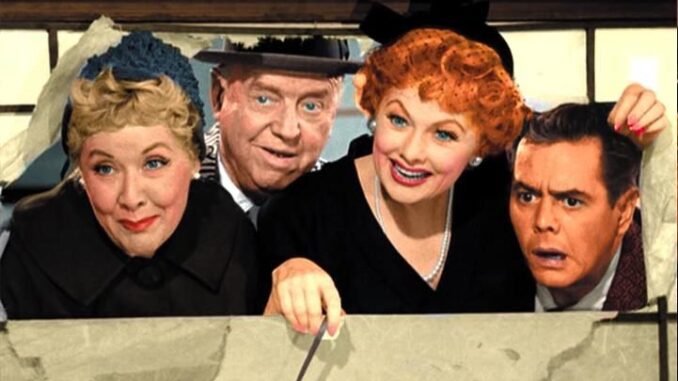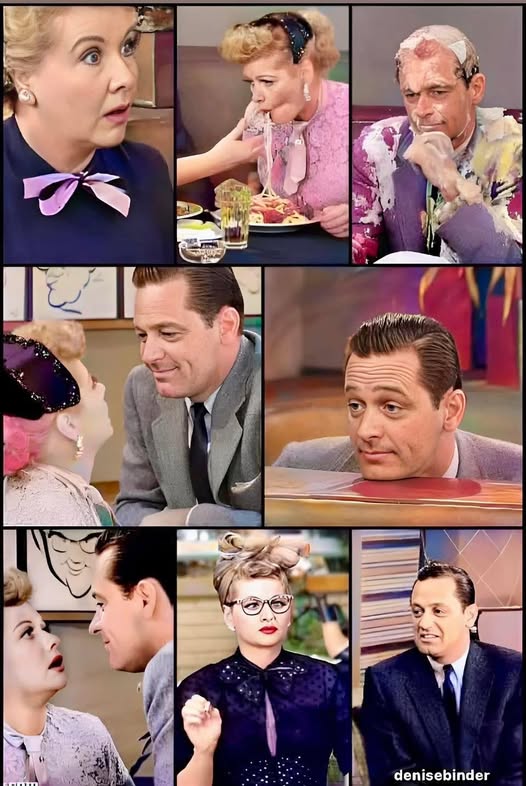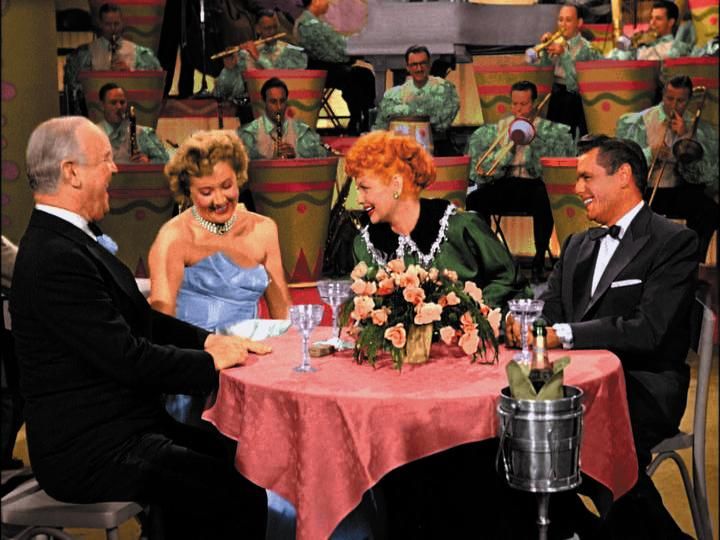
Over seven decades since it first graced television screens, I Love Lucy continues to captivate audiences worldwide. From its original 1951 premiere to modern-day streaming platforms, the show’s timeless humor, innovative storytelling, and endearing characters have cemented its status as a cultural phenomenon. But what is it that allows a sitcom from the early days of television to remain so relevant, entertaining, and beloved by generations far removed from the original audience?
The Groundbreaking Genius of Lucille Ball
At the heart of I Love Lucy’s enduring charm is Lucille Ball herself. Her unmatched comedic timing, expressive physicality, and fearless approach to humor set a standard that few have matched since. Whether she was tangling with a conveyor belt of chocolates at the candy factory or navigating a chaotic grape-stomping scene, Ball’s performances were simultaneously outrageous and relatable. Her ability to blend slapstick with genuine emotion allowed audiences to connect with Lucy Ricardo as more than a character — she became a friend, a confidante, and a source of endless laughter.
Lucille Ball’s brilliance extended beyond acting. She broke barriers as a producer and television executive, co-founding Desilu Productions with her husband Desi Arnaz. Under their leadership, I Love Lucy pioneered innovations such as multi-camera filming before a live audience and syndicated reruns — practices that became standard in television production. These technical and creative breakthroughs ensured that the show’s humor was captured in a way that would endure for decades.
Why the Humor Still Works Today
Despite societal changes and evolving tastes, the comedy of I Love Lucy has remained remarkably effective. Several factors contribute to its timelessness:
-
Relatable Situations: Many episodes explore domestic life, work challenges, and relationship dynamics — situations that viewers of any era can identify with. Lucy’s desire to chase dreams and often fail hilariously resonates universally.
-
Physical Comedy: Slapstick humor, exaggerated expressions, and physical gags transcend language and cultural barriers. The iconic “Vitameatavegamin” scene or Lucy’s antics in the chocolate factory continue to be celebrated as comedy gold.
-
Supporting Cast Chemistry: Desi Arnaz, Vivian Vance, and William Frawley provided the perfect counterbalance to Lucy’s chaos. Their interactions created comedic tension, wit, and warmth, making the show as much about ensemble brilliance as it was about the lead star.
-
Sharp Writing: The scripts combined witty dialogue, clever setups, and unexpected payoffs. Writers tapped into everyday life’s absurdities, ensuring humor that felt both natural and exaggerated enough to generate laughter.

Cultural Impact and Legacy
The influence of I Love Lucy on American culture and global television is immeasurable. Beyond laughter, the show tackled progressive themes subtly for its time — interracial marriage (Lucy and Ricky’s Cuban-American relationship), female ambition, and the complexities of domestic life. By portraying Lucy Ricardo as both mischievous and ambitious, the series offered audiences a heroine who was flawed, funny, and incredibly human.
Lucille Ball’s influence can be seen in countless comedians and television stars who cite her as an inspiration. From modern sitcom leads to sketch comedy performers, her pioneering work set a benchmark for comedic excellence. I Love Lucy also left a lasting impact on television production techniques, ensuring that Lucille Ball’s legacy is not just cultural but structural within the industry itself.
The Role of Nostalgia
One of the secrets to I Love Lucy’s enduring magic is nostalgia. For older generations, it evokes memories of family viewing and simpler times, while younger viewers discover the charm of a bygone era through streaming platforms, DVDs, and social media clips. The combination of historical context, timeless humor, and character relatability creates a unique viewing experience that transcends age.
Moreover, the show’s episodes often feature universal themes — friendship, ambition, love, and perseverance — making them emotionally resonant even decades later. The humor is never reliant on contemporary references that might date the series; instead, it thrives on human situations that remain relevant.
Rediscovery in the Digital Age
The digital era has introduced I Love Lucy to a whole new audience. Streaming services, classic television channels, and viral clips on social media have allowed millennials and Gen Z viewers to experience Lucy’s misadventures firsthand. Memes, GIFs, and short video excerpts have reignited interest in the show, proving that comedy from the 1950s can still dominate online spaces.
Educators and television historians also use the series as a case study, highlighting its innovative production methods, character development, and cultural significance. This scholarly attention ensures that I Love Lucy is appreciated not just as entertainment, but as an important milestone in television history.

Enduring Lessons from Lucy Ricardo
At its core, I Love Lucy teaches timeless lessons about resilience, creativity, and embracing life’s chaos with humor. Lucy Ricardo’s endless schemes, failed plans, and triumphant moments remind audiences that imperfection is human, and laughter is essential. Her adventurous spirit and refusal to conform continue to inspire viewers to pursue dreams, face challenges boldly, and find humor even in failure.
Why We Still Laugh 70+ Years Later
So why does I Love Lucy continue to provoke laughter more than 70 years after it first aired? It’s a perfect storm of brilliant acting, sharp writing, relatable storytelling, and technical innovation. Lucille Ball’s genius, supported by a stellar ensemble and pioneering production, created comedy that transcends eras. The themes are timeless, the physical humor universal, and the emotional core — the relatability of Lucy’s ambitions, mishaps, and human frailty — keeps audiences engaged.
In a world where television trends come and go, I Love Lucy remains a shining example of comedy that endures. Its ability to unite generations, spark laughter, and influence countless future performers ensures that Lucy Ricardo’s legacy will never fade.
Conclusion
I Love Lucy is more than a television show; it is a cultural landmark, a comedic masterpiece, and a testament to the enduring power of laughter. Through seven decades, fans have found joy, inspiration, and a shared connection with Lucy, Ricky, and the unforgettable ensemble. The show’s secret lies in its combination of heart, humor, and relatability — qualities that transcend time and place.
Whether you are discovering Lucy’s antics for the first time or revisiting them for nostalgia, one thing is clear: I Love Lucy continues to make audiences laugh, delight, and marvel at the genius of television’s first comedy queen. Its magic is unstoppable, proving that great humor never truly ages — it only grows richer with every generation.